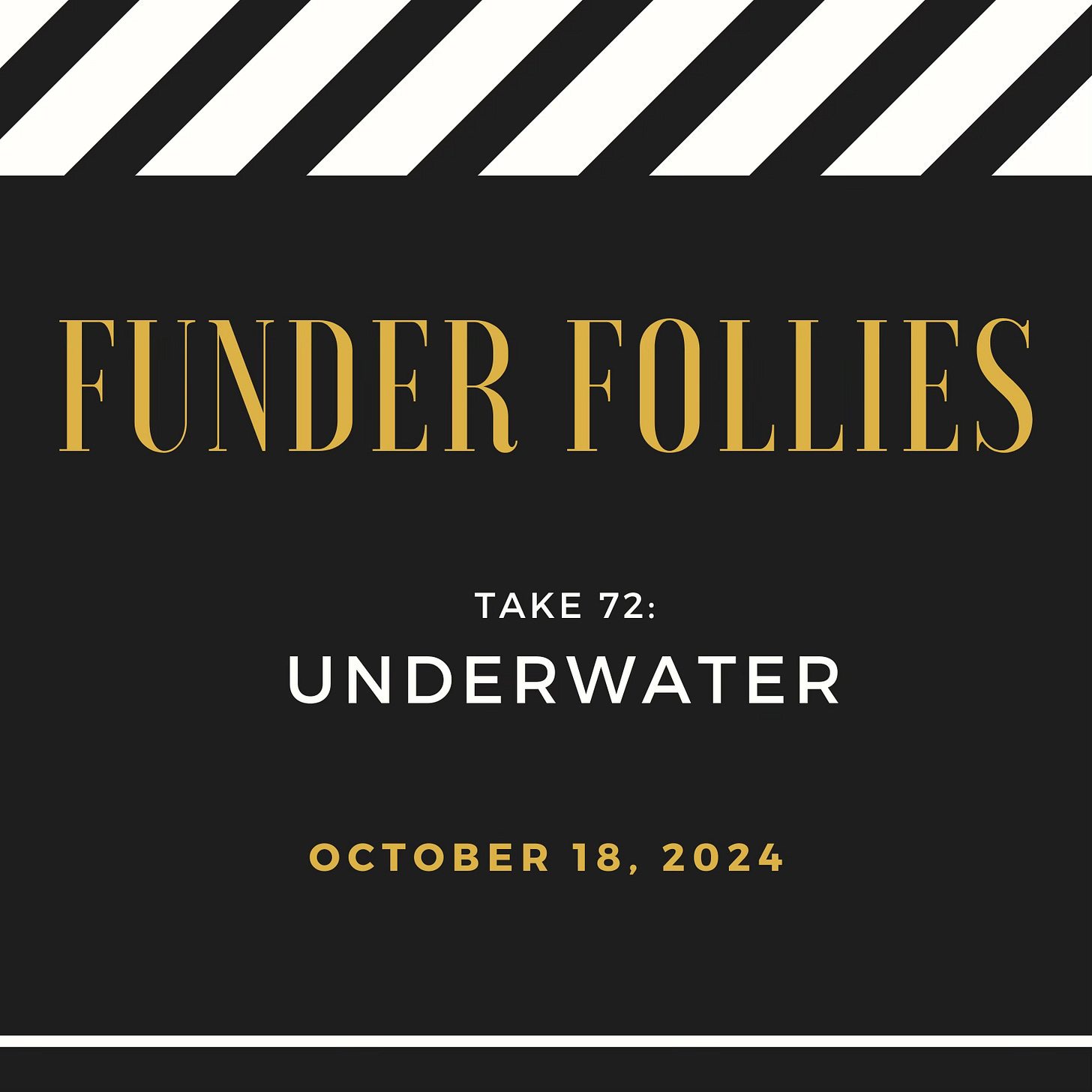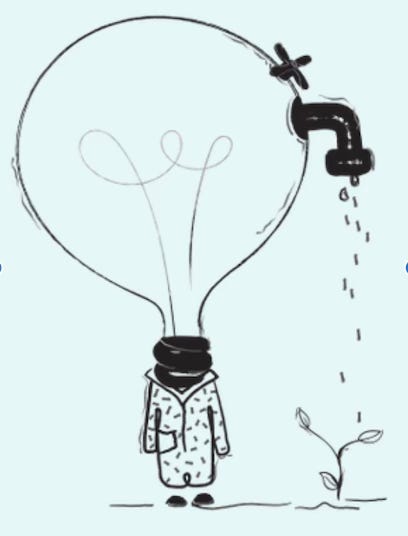This week I was underwater. Literally.
I doused my beloved Macbook Air with a glass of water and listened while that central nervous system of my life went pfssst! as the innards sparked and fried.
The unforgiving universe speaks.
The universe was loud and clear. It told me to slow down. To stop being obsessed with outcomes. (And that’s ironic – as the universe often is – because I was just writing about outcomes.)
It was one of those moments that was so bad I couldn’t tell if I should laugh or cry (another of my mom’s favorite expressions). I mean, I’d been threatening to clean up my downloads and desktop files. Now they’re gone! Well that’s one thing off my to-do list. (Thankfully, the important stuff was in Google drive.)
To save you the headache, I’ll share the advice I learned after the fact for what-to-do-when-your-laptop-gets-wet, because I wish I’d known this before I needed it…
If your laptop gets wet turn it off immediately. Do not succumb to the temptation to see if it’s still working. Dry the keyboard off. Flip it upside-down on a towel to drain.
And leave it for 48 hours.
Then I realized I’m bellyaching about a feeling of momentary panic that most nonprofit executive directors experience all the time.
How can I get all the work I have to do done with the resources I have?
So much of the stress of nonprofit leaders is financial – solving incredibly bold problems with limited staff and money – and this got me to thinking again about how foundations have expertise and resources to support executive directors.
Blah blah blah. I write about that every week. And we all know it’s true. Foundations have tons of resources beyond grants to share with nonprofits, but few do.
Listening is a game changer.
So I sat around feeling sorry for myself and was in a bit of a funk. (My partner loaned me his Mac, so I really have nothing to complain about, except all that time I didn’t plan on spending to set up email accounts and signatures. Woe is me!)
After contemplating my navel for a while (another Maya-ism), I felt lighter. When I reflected back on what improved things, it was a comment from a trusted colleague. She told me that what I was doing wasn’t working as well as it could.
And she said it just right: a sandwich of good-bad-good news. It was shared in kindness, not criticism. And it made me feel …
YES!! That makes so much sense! I can do that.
Listening is – by far – the most satisfying part of fundraising. It’s when you learn about a donor’s passion for change in our community. It’s hopeful. And it’s awe inspiring.
In my case, this feedback came from nonprofits in the new class I’m teaching for a regional community foundation. I absolutely LOVE teaching. It’s 90% encouragement and 10% knowledge. Besides I want to encourage everyone I know to be a fundraiser – it’s an interesting career doing good work for good pay.
So what was their sage advice?
Slow down. It’s great content, but you’re covering too much in too short a time.
Do less, not more. Focus. Breathe. Make space for others’ expertise. Give it a minute to sink in.
And then I can start shopping for waterproof laptops.
Some foundations really do a great job of listening to grantees, like Weingart and Walter & Elise Haas. You can read about both in Folly #22.






We have all been there. But so few among us could recover and speak of it so creatively so soon! You are a wonder!